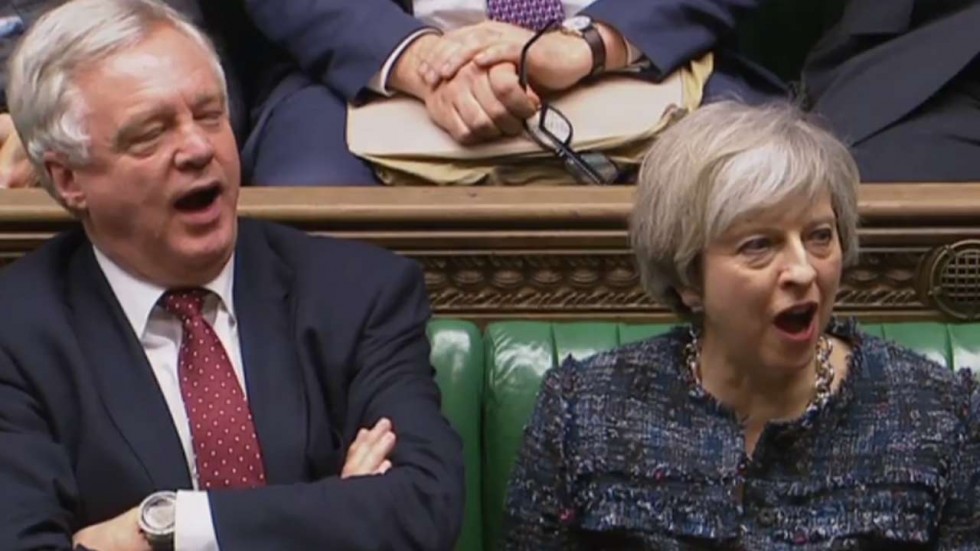British MPs overwhelmingly backed a bill on Wednesday empowering Prime Minister Theresa May to start negotiations on leaving the European Union, bringing Brexit a significant step closer.
Members of the House of Commons voted by 494 votes to 122 for a law enabling May to trigger Article 50 of the EU’s Lisbon Treaty, which begins two years of talks on pulling out of the 28-nation bloc.
The unamended two-clause bill now moves to the House of Lords, where there may be more opposition from unelected peers and where May’s Conservative party does not have a majority.
But its passage through the Commons, where two-thirds of MPs had campaigned against Brexit ahead of the June referendum, puts May on course to begin the withdrawal process by the end of March, as she has vowed.
“This, elementally, is a straightforward bill which serves only to give the prime minister the power to trigger Article 50 and thereby respect the result of the referendum,” said Brexit minister, David Jones.
The Brexit referendum result had sent shock waves around Europe, spooking investors and raising fears for the future of the EU itself.
In the early weeks, there was speculation that pro-European lawmakers might try to delay or even halt the Brexit process.
May initially sought to bypass parliament, prompting an appeal to the Supreme Court that last month ruled she must obtain their approval to trigger Article 50.
But during five days of debate on the resulting government bill, it became clear that most MPs would not stop the process, even if some warned that leaving Europe’s single market could be disastrous.
The opposition Labour party and the smaller Scottish National Party tabled amendments demanding guarantees on market access, workers’ rights and those of EU citizens in Britain.
Each was defeated, although during the process the government was forced to promise lawmakers a vote on the final Brexit deal before it is concluded.
Labour imposed a “three-line whip,” a tough disciplinary measure ordering its MPs not to oppose the legislation, ensuring it would pass.
But some 47 Labour MPs rebelled last week, and business spokesman Clive Lewis resigned to back them shortly before Wednesday’s vote, bringing a fresh headache for embattled leftist leader, Jeremy Corbyn.
After two-thirds of Labour voters backed Brexit, many of them driven by concerns over mass immigration from the rest of the EU, Corbyn decided his party could not block the process.
But with dismal opinion poll ratings and long-running discontent among MPs over his leadership, a major rebellion could seriously undermine his position.
May has promised to prioritise controlling migration in the Brexit negotiations, even if that comes at the expense of giving up membership of Europe’s single market and its 500 million customers.
Concerns over losing access to the continental trading zone have sent the pound plunging around 15 percent against the dollar since the referendum.
Under pressure from MPs, the government was forced to concede on Tuesday that MPs and peers would vote on the agree exit terms and the new trading relationship with the EU.
The move helped fend off a rebellion by pro-European members of May’s Conservative party, but left many lawmakers unhappy with parliament’s future role.
There is skepticism on both sides of the Channel that both an exit deal and a trade agreement can be agreed within two years, raising the question of what parliament would be voting on at the end.
Ministers also confirmed that if lawmakers rejected the final deal, the alternative was not to return to negotiations — but to leave the bloc without any agreement at all.

